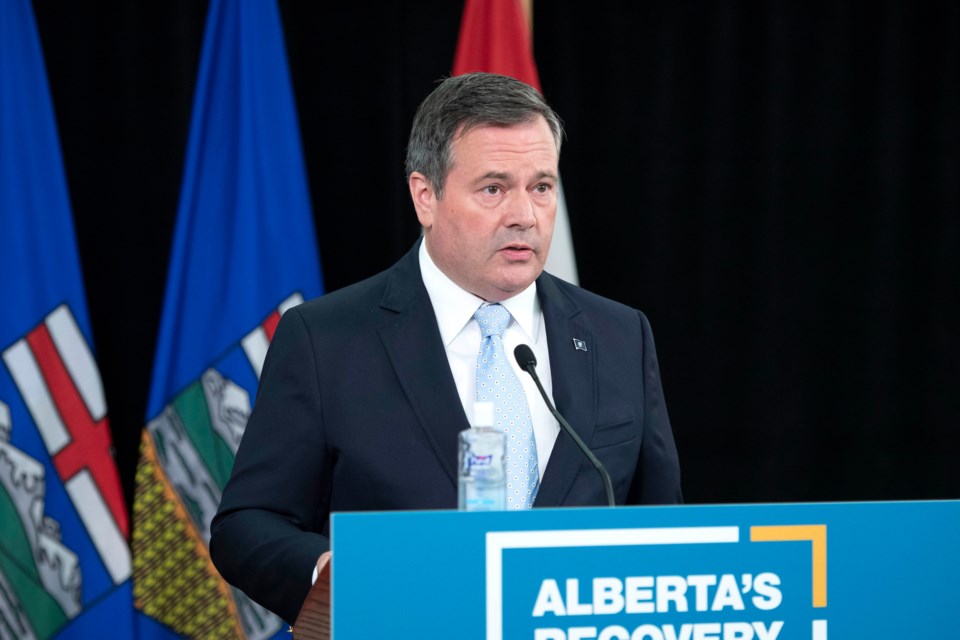Premier Jason Kenney says the province's supply of the COVID-19 vaccine will run out a week from now, "unless we get a huge surprise shipment."
On Monday, he said Alberta's health system has stepped up, but all provinces have to depend on the federal government to procure and distribute more doses.
"Alberta's capacity to give people the jab will soon outstrip available vaccine supplies and we are doing everything humanly possible to roll out these life-saving vaccines as quickly as they arrive," Kenney said.
The province is expecting 677,000 doses of the Pfizer-BioNtech and Moderna vaccines by the end of March, but Kenney said Alberta's capacity to administer the vaccine at that point "will far outstrip the incoming supply."
So far, the province has distributed 46,791 doses of the Pfizer and Moderna vaccines to staff and residents in long-term care and supportive living senior homes, home care workers, respiratory therapists, and health workers in ICUs, emergency departments and COVID-19 units.
Kenney said vaccines will be offered to all long-term and supportive living facilities in Alberta by the week of Jan. 18. He said the province is taking steps daily "to improve our vaccine campaign and expand eligibility."
By the end of January, Kenney said the province will be able to administer 50,000 doses of the COVID-19 vaccine per week through partnerships with community pharmacies.
Paramedics eligible
On Monday, the province also expanded eligibility for the COVID-19 vaccine to include Alberta's paramedics and emergency medical technicians (EMTs). Previously, these health professions were not included in the first phase of the COVID-19 vaccine distribution. The news was welcomed by the Alberta Paramedics Association during the update, and the association thanked the province for listening to their concerns and acting on them.
"They are a vital component of our COVID response, and I know that all paramedics are working day-in and day-out to keep Albertans safe," said Minister of Health Tyler Shandro. "This expansion of eligibility is important as we ramp up our efforts to get as many doses in the arms of health care workers as well as vulnerable Albertans as possible."
Out of nearly 50,000 doses administered, seven people have reported having adverse effects, three of whom reported an allergic reaction. The effects "aren't necessarily caused by the vaccine," said Dr. Deena Hinshaw, Alberta's chief medical officer of health, who encouraged people to report any reactions to the immunization.
"What we have seen so far is consistent with what was reported in the vaccine trials. It is common to see side effects like fever or muscle aches after a vaccine, and this is a sign the immune system is working to build antibodies. I believe the benefits of vaccines far outweigh any risks, and this vaccine will save lives."
Alberta reported 639 new cases of COVID-19 on Monday with 23 more deaths. The testing positivity rate was 6.1 per cent. The province currently has 13,917 active cases of the virus, with 811 people in hospital. Of those, 130 people are receiving treatment in ICU.
Kenney said his government's approach has been to use restrictions "as a last and limited measure because we do recognize the damaging impact that they have," but the province had to introduce mandatory measures to reduce overall social contact and curb surging COVID-19 case counts.
He said the province will be looking over the data once numbers stabilized from the dip in testing over the Christmas holidays, and will be coming back to look at restrictions in the coming weeks.
Hinshaw said the best way to be able to open up businesses again is "for all of us to work together to bring our numbers down."



